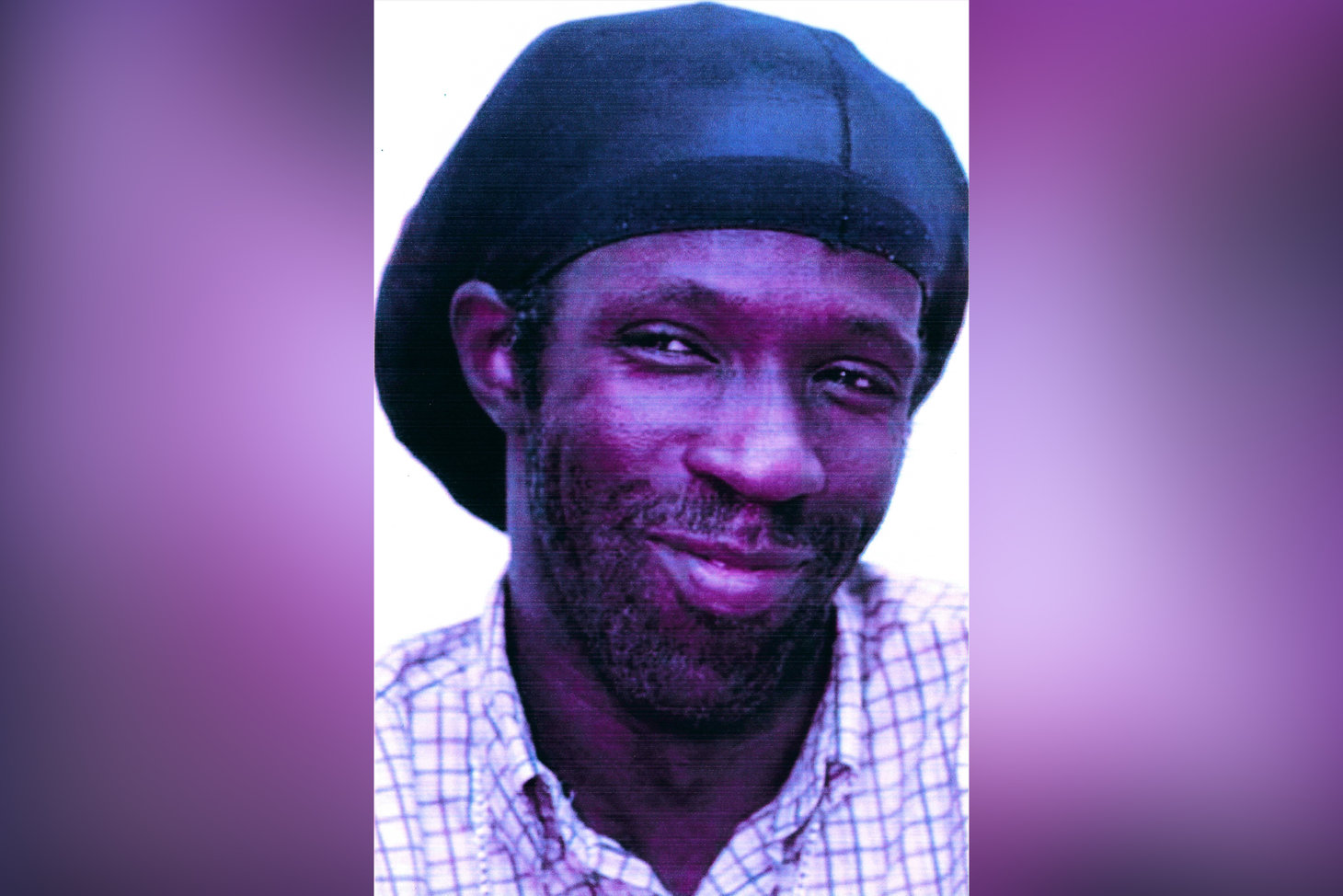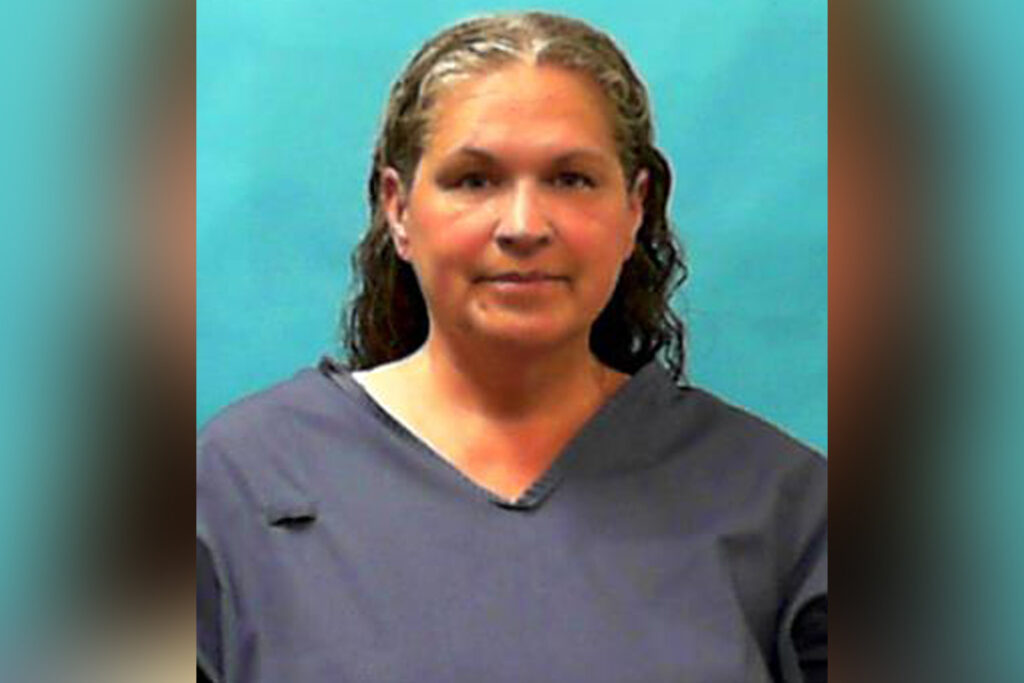A Multi-Million Dollar Mystery:
Was A Lottery Winner’s Sudden Wealth Motive For Murder?
Abraham Shakespeare’s financial advisor told relatives that the pressures of wealth drove him into isolation.
A Florida man hit the jackpot after winning millions on a lottery ticket, but had his luck run out when he mysteriously disappeared?
Abraham Shakespeare’s rags-to-riches story begins in his hometown of Plant City, a rural community known for its vast strawberry fields and orange groves. He didn’t have much growing up in the hardscrabble town and worked in the fields to support his family.
“I think he wished and hoped and prayed that he would win the lottery, but Abraham wasn’t a real fortunate person,” Abraham’s friend, Greg Smith, told “Buried in The Backyard,” airing Thursdays at 8/7c on Oxygen. “He left school to go to work to see what he could do about helping his family.”
But on Nov. 15, 2006, Abraham and a friend, Michael Ford, stopped at a local convenience store. Abraham handed Ford a few dollars and asked him to buy two lottery tickets. That night, he won $31 million.
Abraham agreed to a payout of $16.9 million and shared his generosity by purchasing homes for his cousins. He also helped his friend Greg Smith, a local barber, pay for a business loan worth $87,000. Smith agreed to pay Abraham in installments to pay off his debts.
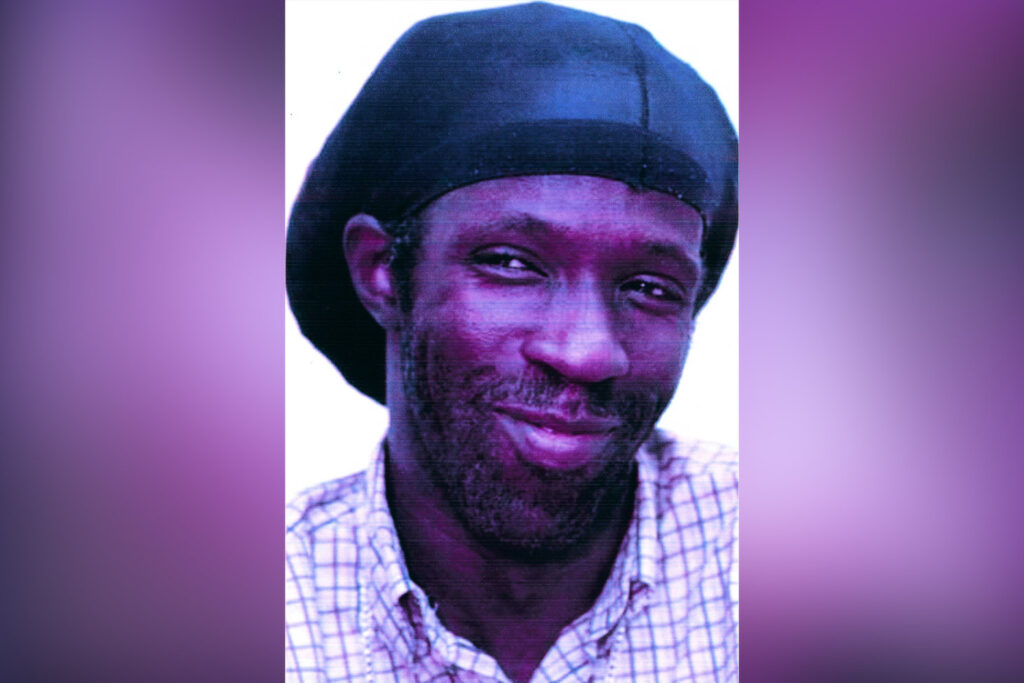
“He bought a home in north Lakeland, which was a home he dreamed of,” said David Clark of the Hillsborough County Sheriff’s Department. “It was a small mansion.”
But Abraham, an uneducated man who struggled just to read and write, seemed to be in over his head.
“It was scary because he didn’t know how to manage his money. He had his entourage around him, but half those people, he didn’t know,” Abraham’s cousin Tammy Edom told producers. “They knew he couldn’t read. They knew he couldn’t write. They knew he couldn’t sign nothing but his name.”
“He was their cash cow,” said his cousin, Cedric Edom. “And they milked him daily.”
Less than two years after striking it rich, Abraham was down to his last $2 million. But Lady Luck entered his life when a mutual friend introduced him to Dorice “Dee Dee” Moore. She offered to write a book and tell Abraham’s story, but as the pair fleshed out the details, she realized he was quickly falling into financial ruin.
Abraham allowed Dee Dee to step in and fill in the role as his financial advisor. She suggested that he not leave the house to avoid those wanting a piece of his wealth. He isolated himself in his large home.
When loved ones couldn’t get in touch with Abraham after a few weeks, Dee Dee Moore, the only person in close contact with him, assured them that Abraham needed to get away. She also maintained that Abraham was sending her text messages, insisting he was fine.
Abraham’s family didn’t think it was entirely implausible.
“He did mention wanting to leave town,” said Cedric Edom. “We wanted to help him because everybody else’s dream, he was trying to fill, and he never had time for himself.”
But after seven months of no contact, Edom reported Abraham missing to the police.
Abraham’s mother told authorities she’d received text messages from her son, which rang peculiar to her, as he couldn’t read or write.
“This was more than a missing persons case,” said Clark. “This was a missing persons case involving a 30-plus-million dollar lottery winner.”
Investigators looked at the long list of people who owed him money. The suspects were plenty, but there was no evidence, and no leads for authorities to determine foul play in Abraham’s disappearance. They looked to Dee Dee Moore, the last person in touch with Abraham. Moore readily shared texts from Abraham, indicating he left on his own volition.
Investigators thought they hit pay dirt when they discovered Michael Ford, the man who took Abraham’s money to purchase the lottery tickets, sued Abraham. Ford asserted that the winnings belong to him and that Abraham stole them from him. In court, a judge ruled that Abraham was the rightful owner of the tickets. But was Ford’s courtroom defeat motive for Abraham’s disappearance?
Ford denied any involvement, and authorities determined Ford was in Georgia at the time of Abraham’s disappearance.
At Christmastime in 2009, Abraham’s mother received a phone call from a private number. On the line was a man claiming to be Abraham. But mother’s intuition told her that the caller wasn’t her son. She reported it to detectives, who traced the call.
The call came from Greg Smith, the barber who accepted the $87,000 loan from Abraham.
Investigators tracked the phone to a busy shopping mall parking lot. While waiting to find Smith amidst hundreds of cars, they were surprised to see another familiar face pull in: Dee Dee Moore. They followed Moore as she pulled her car alongside Smith’s. Moore got into Smith’s car and handed him a wad of cash.
Authorities tailed Smith and pulled him over. Smith cooperated, claiming Moore paid him to make the phone call to Abraham’s mother.
“I said, ‘Listen. I made that telephone call,’” said Smith. “’A lady paid me $5,000 to call and say I was Abraham Shakespeare.’”
“When we told Greg that something was going on with Abraham, he did genuinely seem surprised,” said Clark.
Authorities released Smith, but why would Moore stage a phony phone call? Red flags caught investigators’ attention when they dug into her background. Moore’s history contained accusations of fraud, theft, and arson. She was also arrested for insurance fraud after lying about a couple of men who allegedly attempted to rape her and steal her car.
Authorities decided to bring Smith back in, requesting that he wear a wire and meet with Moore.
“I said, ‘Serious, man? I ain’t trying to chase that woman,’” said Smith. “But when authorities told me he’s a missing man, I believed that. So I said, ‘I’ll tell you what. What do you need me to do to help you out?’”
Smith placed the wire in an empty energy drink can and drove to the gas station to meet with Moore. Moore told Smith that she was being blamed for Abraham’s disappearance but would pay for someone to take the rap for it.
It was enough for investigators to attain a subpoena for her phone records. Upon examination, they found that after Abraham disappeared, the only calls and texts from Abraham’s phone were made to Moore. Compared with Abraham’s phone records, Moore’s cell phone pinged from the same cellular towers as Abraham’s.
Under the guidance of detectives, Smith called Moore and said he had a solution to her problem. Smith brought a man he claimed was his cousin to another meeting with Moore. The cousin, however, was an undercover cop.
“In that conversation, she finally admits that she believes Abraham is dead,” said Clark. “And that somebody shot him.”
The undercover cop said he’d go to prison for Abraham’s disappearance if Moore paid him $50,000 and provided the location of his body, claiming he needed his story to sound credible to detectives. Moore claimed Abraham was shot and that she knew where he was.
Later that evening, Moore requested to meet with Smith alone at a gas station. From there, she drove Smith from Lakeland to Plant City, where she’d purchased a house. She led him to a large cement slab in her backyard and said, “Tell your boy to dig six feet down, and you’ll find Abraham’s body.”
She also handed Smith the murder weapon, maintaining she got the gun from the unknown person who shot and killed Abraham.
On Jan. 25, 2010, authorities found the remains of Abraham Shakespeare exactly where Moore said they were.
“When we found out Abraham was buried under a slab in the backyard, it’s just devastating,” said Tammy Edom. “I couldn’t take it.”
Authorities found Dee Dee Moore at Abraham’s Lakeland mansion, which she claimed she’d purchased from him, and brought her in for questioning. In a videotaped interrogation on Feb. 2, 2010, Moore denied killing Abraham and stated that drug dealers killed him.
Unless she confessed, detectives had no proof she pulled the trigger. Looking further into her history, investigators visited her ex-husband. He said that on the night of Abraham’s murder, Moore had him use a machine to dig a hole in her backyard and fill it in after sundown. The ex-husband claimed he had no idea there was a body at the bottom. Authorities determined the man, who had never before met Abraham, was not involved in his murder.
Circling back to Moore, she claimed she was a victim when men stormed into Abraham’s home and killed him. She was allegedly forced to cover up the crime.
“A guy come in and shot him. Took everything we had in the safe for cash and left with it,” Moore told detectives in the taped interview. “They put a gun in my mouth. I peed my pants. I was scared.”
She provided a name to detectives, but it turned out to be a dead end. As her story came apart, prosecutors charged her with murder.
At trial, it was revealed that Moore spent Abraham’s money on lavish gifts, including a $70,000 Corvette for her boyfriend, a $30,000 truck for herself, Rolex watches, and diamond rings.
By the time Abraham’s body was found, he had only $10,000 left to his name.
In 2012, a jury found Dee Dee Moore guilty of first-degree murder. A judge sentenced her to life in prison without the possibility of parole.
“For her to kill him, it was just like, ‘Why?’” said Tammy Edom. “’He would have bought you anything. He woulda gave you what you wanted.’ To me, that was senseless.”
Dee Dee Moore remains incarcerated at the Lowe Correctional Facility in Ocala, Florida.
Florida woman who murdered generous $30m lottery winner after worming her way into his life to get her hands on his last $1m says she BACKS new bill that would keep identities of big winners private for 90 days
- Dorice Donegan ‘Dee Dee’ Moore, 49, is serving life sentence for killing Florida lottery winner Abraham Lee Shakespeare in 2009
- Shakespeare, a truck driver, won $30million jackpot in 2006, but by the time Moore wormed her way into his life, he had given away most of his money
- Moore used Shakespeare’s last million to buy luxury vehicles and a vacation, before he was shot dead and buried under concrete slab
- Now, Moore, who maintains her innocence, is speaking out in support of new bill that would keep names of lottery winners secret for 90 days
- That time has been proposed as sufficient to give winners the opportunity to notify family, hire security and make investments in private
- Speaking from prison, Moore said identifying winners ‘puts a target on them,’ and she believes 90 days is not long enough
- Bill passed both Florida House and Senate, and it now awaits Gov Ron DeSantis’ signature
A Florida woman who is serving a life sentence after being convicted of murdering a $30million lottery winner more than a decade ago has emerged as an unlikely supporter of a new bill that would keep the names of jackpot winners a secret for 90 days.
In a telephone interview from behind bars, Dorice Donegan ‘Dee Dee’ Moore, 49, of Tampa argued that publicly identifying winners and sharing details about their windfall ‘puts a target on them.’
In December 2012, a jury found Moore guilty of first-degree murder in the 2009 shooting death of Abraham Lee Shakespeare, 42.
Moore has maintained her innocence and has repeatedly appealed her conviction, which was upheld twice – in 2015 and 2019. And now she is speaking out in favor of the new proposal, even arguing that 90 days proposed is not enough.
Florida lawmakers say giving winners three months should afford them sufficient time to hire security, tell their loved ones about the win, and seek investment advice in peace.
She said she intends to continue her legal battle to clear her name.
The bill awaiting Gov Ron DeSantis’ signature would withhold the names of people who win $250,000 or more in the state lottery for 90 days, unless the winner wants to be publicly identified.
The state House passed the bill 114-1 and the Senate passed it 37-1 last month. DeSantis, a Republican, was expected to sign it into law as early as this month.
During House hearings, Rep. Tracie Davis, a Democrat from Jacksonville, cited news coverage of lottery winners from Florida and Georgia who were killed after claiming their prizes.
‘At some point in our lives, we all dream of winning the lottery,’ said Davis, the bill’s sponsor. ‘Unfortunately for some people, that dream of winning the lottery, sometimes those dreams become a nightmare.’
Sen. Tina Polsky, D-Boca Raton, said delaying disclosure of a winner’s identity would give the winner time to put security measures in place in order to protect them from scams, harassment, or worse. She sponsored a version of the bill in the Senate.
In Georgia, Craigory Burch, 20, was shot to death in a home invasion in 2016 in front of his girlfriend and one of their children, months after he won $400,000. Georgia is now among 10 states that allow lottery winners to remain anonymous.
In the Florida case, Moore – described as a ‘pathological liar’ by police – said she met Shakespeare, a truck driver, under the pretense of writing a book about him after he won $30million in a lottery in 2006.
She later convinced him to let her help manage financially what remained of his lottery winnings – Moore said at that point he had only about $1million left.
Shakespeare spent much of his winnings paying off mortgages of family and friends and giving money to people who asked him for help, according to trial testimony.
Prosecutors said Moore withdrew $1million from Shakespeare’s bank accounts, spending the money on a Hummer, Corvette, a truck and a vacation.
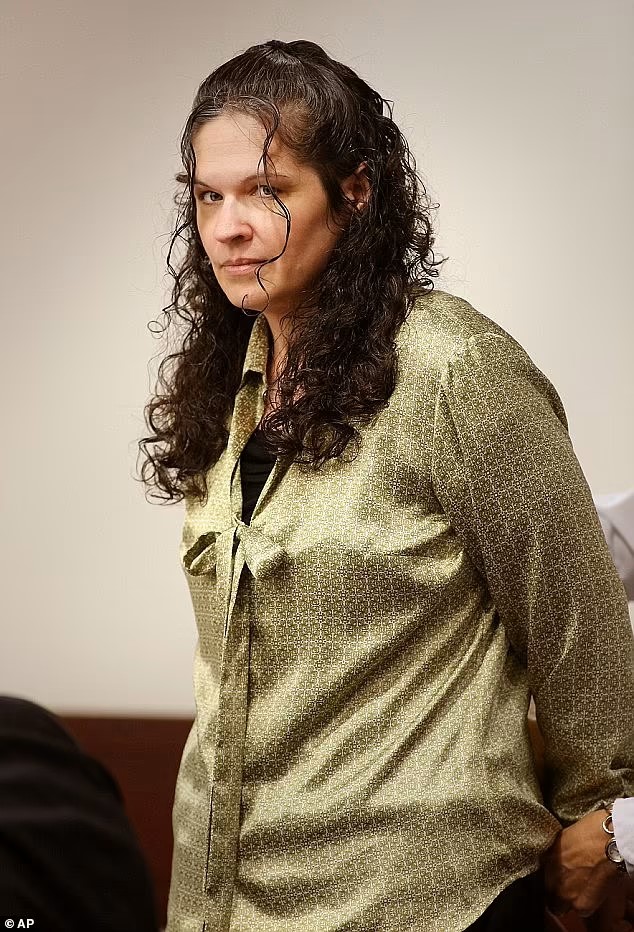
A jury convicted Moore of first-degree murder in 2012 for Shakespeare’s shooting death
Shakespeare was shot dead in April 2009. His body was found 10 months later under a concrete slab behind a home detectives say was owned by Moore’s ex-boyfriend in Hillsborough County.
Moore led police to the burial site after a sting operation, during which an undercover officer recorded her admitting that she knew the location of Shakespeare’s body.
In her latest interview from Lowell Correctional Institution, Moore said keeping lottery winners’ names secret even for 90 days wasn’t long enough. She said details about whether a winner chose a lump-sum payout or payments over time also should not be disclosed.
‘I don’t feel that’s enough time,’ she said. ‘You’ve got to understand, this person has to change their whole life around.’
She said a lottery winner would need at least six months of privacy.
‘Ninety days is nothing, you see how quick time flies,’ said Moore, who has been in a state prison for nearly 3,400 days.
Moore wrote in a letter to the court in 2019 that she regretted not being truthful during her trial, but she continued to maintain that she did not shoot Shakespeare. ‘I really did not kill him,’ she wrote.
Under Florida’s existing law, the lottery agency immediately releases the name of winners, city of residence, game, date won and amount won to anyone who requests it.
It does not disclose the winner’s home address or phone numbers, although such information can usually be discovered elsewhere, such as property records or voter registration files, which remain publicly accessible.
The bill in Florida still would allow for names and details about lottery winners to be disclosed to state agencies that might be owed a debt, courts to collect child support, government auditors or legislative leaders. Insiders who illegally disclose names of lottery winners before they would be allowed could be charged with a felony. Lawmakers would be required to re-approve the bill in 2027.
Only two state lawmakers – one in the House and another in the Senate – voted against the measure.
‘People want to know who won the lottery – a government-run, taxpayer-funded program,’ Rep Anthony Sabatini, a Republican, said.
‘LOTTERY CURSE’ REVEALED: WINNERS SHOT, STABBED, HIT BY CAR OR SQUANDERED JACKPOT
|
Woman who murdered a $30 million lottery winner backs a bill to shield jackpot winners’ identities
By Isabella Leandri – WUFT
In a telephone interview from behind bars, Dorice Donegan “Dee Dee” Moore, 49, said publicly identifying recipients and details about big lottery payouts puts their lives at risk. She was convicted in the murder of Abraham Lee Shakespeare in Plant City in 2009.
A bill awaiting the governor’s signature that would temporarily keep secret the names of lottery winners in Florida has at least one unexpected supporter: the woman in prison for murdering the winner of a $30 million lottery payout.
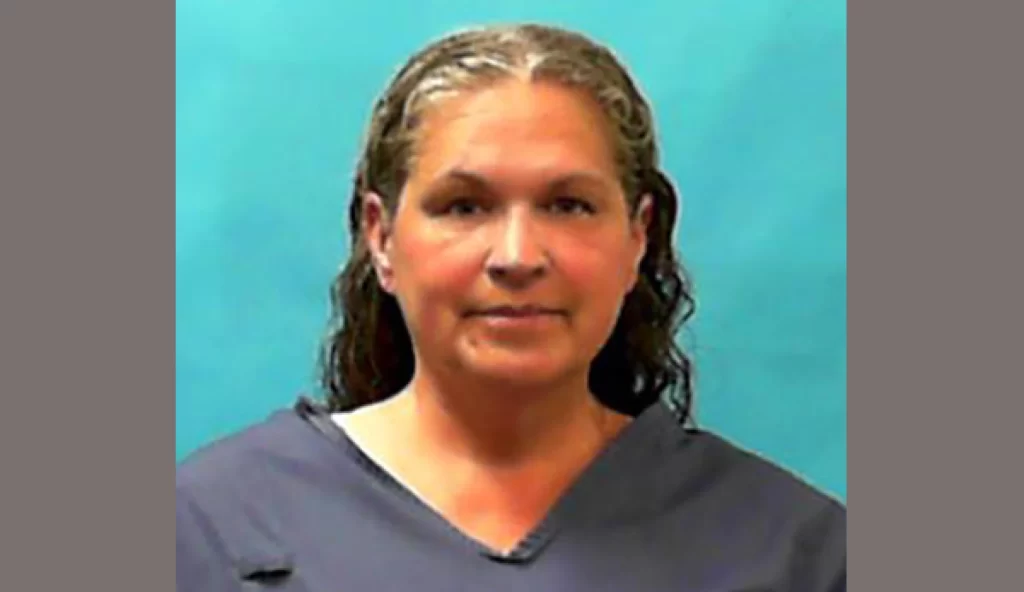
In a telephone interview from behind bars, Dorice Donegan “Dee Dee” Moore, 49, of Tampa said publicly identifying recipients and details about big lottery payouts puts their lives at risk.
“It puts a target on them,” Moore said. She is serving a life term at the Lowell Correctional Institution in Ocala.
A jury convicted Moore in December 2012 of first-degree murder in the 2009 shooting death of Abraham Lee Shakespeare, 42. Florida appeals courts upheld her conviction in 2015 and again in 2019, calling her own continuing claims of innocence “confusing, conclusory and vague.” She said she intends to continue her legal appeals.
The bill in Florida’s Legislature would keep secret for 90 days the names of lottery winners of $250,000 or more unless the winner wants to be publicly identified. The House passed it 114-1 and the Senate passed it 37-1 last month. Gov. Ron DeSantis was expected to sign it into law as early as this month.
During House hearings, Rep. Tracie Davis, D-Jacksonville, cited news coverage of lottery winners from Florida and Georgia who were killed after claiming their prizes.
“At some point in our lives, we all dream of winning the lottery,” said Davis, the bill’s sponsor. “Unfortunately for some people, that dream of winning the lottery, sometimes those dreams become a nightmare.”
Sen. Tina Polsky, D-Boca Raton, said delaying disclosure of a winner’s identity would give the winner time to put security measures in place. She sponsored a version of the bill in the Senate.
“Some winners endure all types of scams, harassment and even loss of life,” Polsky said. “The reason behind the 90 days is to give lottery winners sufficient time to plan responsibly, by notifying family, obtaining financial advice and even getting funds into investments.”
In Georgia, Craigory Burch, 20, was shot to death in a home invasion in 2016 in front of his girlfriend and one of their children, months after he won $400,000. Georgia is now among 10 states that allow lottery winners to remain anonymous.
In the Florida case, Moore said she met Shakespeare under the pretense of writing a book about him. She later convinced him to let her help manage financially what remained of his lottery winnings – Moore said at that point he had only about $1 million left. Shakespeare spent much of his winnings paying off mortgages of family and friends and giving money to people who asked him for help, according to trial testimony.
Prosecutors said Moore withdrew $1 million from Shakespeare’s bank accounts, spending the money on a Hummer, Corvette, a truck and a vacation. Shakespeare, shot twice in the chest, was found buried under a concrete slab in the back yard of a home Moore had purchased. By the time of his death, the sheriff said all $30 million had been spent.
In her interview from prison, Moore said keeping lottery winners’ names secret even for 90 days wasn’t long enough. She said details about whether a winner chose a lump-sum payout or payments over time also should not be disclosed.
“I don’t feel that’s enough time,” she said. “You’ve got to understand, this person has to change their whole life around.”
She said a lottery winner would need at least six months of privacy.
“Ninety days is nothing, you see how quick time flies,” said Moore, who has been in a state prison for nearly 3,400 days.
Moore wrote in a letter to the court in 2019 that she regretted not being truthful during her trial, but she continued to maintain that she did not shoot Shakespeare. “I really did not kill him,” she wrote.
Under Florida’s existing law, the lottery agency immediately releases the name of winners, city of residence, game, date won and amount won to anyone who requests it. It does not disclose the winner’s home address or phone numbers, although such information can usually be discovered elsewhere, such as property records or voter registration files, which remain publicly accessible.
The bill in Florida still would allow for names and details about lottery winners to be disclosed to state agencies that might be owed a debt, courts to collect child support, government auditors or legislative leaders. Insiders who illegally disclose names of lottery winners before they would be allowed could be charged with a felony. Lawmakers would be required to re-approve the bill in 2027.
In the Senate, only Sen. Ray Rodrigues, R-Fort Myers, voted against the measure. In the House, Rep. Anthony Sabatini, R-Clermont, was the only lawmaker who voted against it.
“People want to know who won the lottery – a government-run, taxpayer-funded program,” Sabatini said.
The bill exempts names of lottery winners from disclosure for 90 days under Florida’s public records law.
The law is considered among the nation’s most powerful tools for government transparency, but lawmakers over the years have added more than 1,000 categories of government information that are off limits under it.
https://www.youtube.com/watch?v=n2bFbRYKm0g

